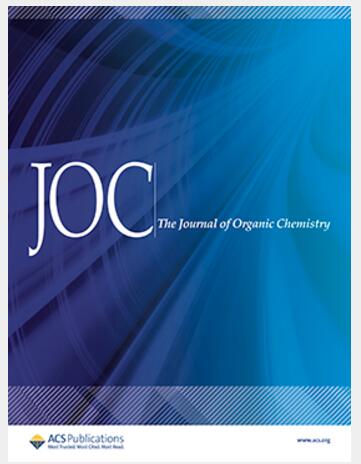亲电芳香取代中典型的吸电子基团是邻位、元导向而不是元导向
IF 3.3
2区 化学
Q1 CHEMISTRY, ORGANIC
Journal of Organic Chemistry
Pub Date : 2025-04-22
DOI:10.1021/acs.joc.5c0042610.1021/acs.joc.5c00426
引用次数: 0
摘要
吸电子基团传统上被认为是芳香取代反应中的元导向基团。然而,当预先存在的取代基是π受体时,实验和计算都表明,大量的邻位取代和间位取代发生,而对反应性很小。一个简单的微扰MO论证使这一发现合理化。因此,建议这些取代基最好被理解为邻位,元导向,优先选择元,正如电子给基被认为是邻位,准导向,优先选择对。本文章由计算机程序翻译,如有差异,请以英文原文为准。
Typical Electron-Withdrawing Groups Are ortho, meta-Directors Rather than meta-Directors in Electrophilic Aromatic Substitution
Electron-withdrawing groups are traditionally considered meta-directing in aromatic substitution reactions. However, when the pre-existing substituent is a π-acceptor, both experiment and calculation indicate that substantial amounts of ortho as well as meta substitution occur, with very little para reactivity. A simple perturbative MO argument rationalizes this finding. It is therefore suggested that these substituents are best understood as ortho, meta-directors, with a preference for meta, just as electron-donating groups are considered ortho, para-directors, with a preference for para.
求助全文
通过发布文献求助,成功后即可免费获取论文全文。
去求助
来源期刊

Journal of Organic Chemistry
化学-有机化学
CiteScore
6.20
自引率
11.10%
发文量
1467
审稿时长
2 months
期刊介绍:
Journal of Organic Chemistry welcomes original contributions of fundamental research in all branches of the theory and practice of organic chemistry. In selecting manuscripts for publication, the editors place emphasis on the quality and novelty of the work, as well as the breadth of interest to the organic chemistry community.
 求助内容:
求助内容: 应助结果提醒方式:
应助结果提醒方式:


